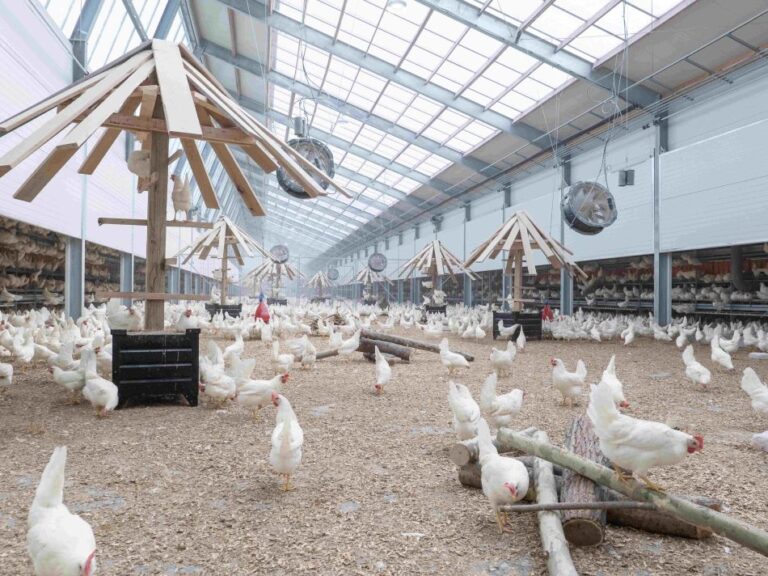Lidl has announced it is planning to start sourcing eggs from a farm designed by Dutch company Kipster, which claims to produce high welfare and environmentally friendly eggs.
The system, which features an indoor barn with a veranda, allows the birds to move around freely with lots of enrichment, but does not provide outside access.
Last October, Lidl said it would be selling only free-range eggs by the end of 2024, so this announcement is an apparent change of policy. Lidl has been approached for comment.
A planning application for the farm has been lodged with Telford and Wrekin Council, which if given the go-ahead will be run by Griffiths Family Farms.
Kipster introduced its farming concept to the Netherlands in 2017, and was developed in partnership with scientists and animal welfare organisations to meet the needs and instincts of chickens. Lidl said the farms “exceed typical free range standards”. However, Tracey Jones, global director of food business at Compassion in World Farming pointed out the system was actually a barn system, rather than free-range. She said: “We fully support Kipster’s innovative barn system for laying hens as it addresses both animal welfare and sustainability concerns, as well as providing a good working environment for the farmers.
Peter de Roos, Chief Commercial Officer at Lidl GB, said: “When we first met with Kipster, we were instantly struck by their devotion and commitment to providing the highest welfare standards for chickens and roosters, whilst also doing right by the planet. At Lidl we want to give our customers the very best products at the best possible prices, which is why we’re so excited to be the first grocer to bring Kipster’s eggs to our stores across Great Britain. We would urge Telford and Wrekin Council to approve the plans to ensure that British shoppers have access to this industry leading egg.”
Ruud Zanders, Founder of Kipster, commented: “We are delighted to be working with British farmers who are keen to take the next step towards more animal welfare and environmental sustainability. We are immensely grateful to Lidl for the trust they put in us to get Kipster off the ground in the UK. With their support we farmers can close the gap between what we’re doing and what people want and need, which is more ethically and sustainably produced food.”
Feed in the Kipster system made of by-products from crop and food processing, such as faulty pasta products or unwanted food from bakeries. The resulting upcycled feed has a carbon footprint that’s around 40% that of conventional chicken feed. The Kipster system also takes an innovative approach to male chicks, rearing them for meat, rather than culling them.


